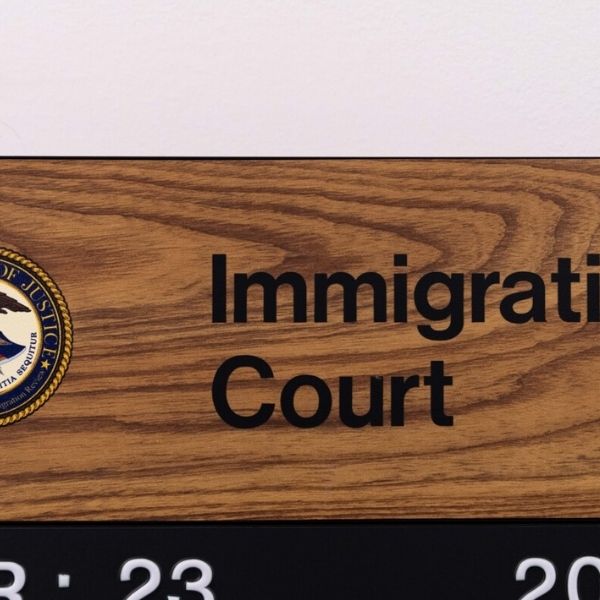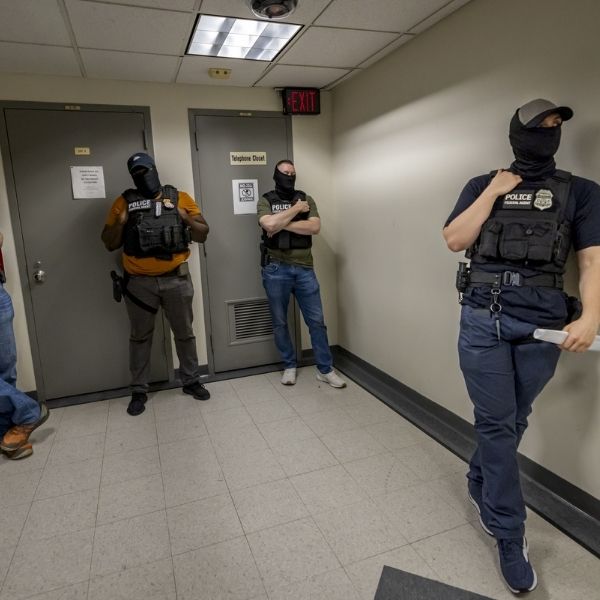Marriage laws across the United States vary considerably, especially when it comes to familial relationships like cousin marriages. Texas, known for its blend of traditional values and independent legal structure, has specific rules on this topic. While cousin marriage might be considered taboo in some communities, it’s still legal in many parts of the world. But what about Texas?
In this article, we will explore whether it is illegal to marry your cousin in Texas, what the laws currently state, how Texas compares with other U.S. states, historical perspectives, and the social, cultural, and genetic implications of cousin marriages. We’ll also explore how cities such as Houston, Dallas, Austin, San Antonio, and smaller communities like Ingleside view this issue.
Understanding Marriage Laws in Texas
Texas law is governed by the Texas Family Code, which outlines who can marry, age requirements, license rules, and prohibited relationships. While most marriages are straightforward in terms of legality, Texas clearly defines prohibited degrees of relationships when it comes to marriage, including those involving close blood relatives.
In Texas, it is illegal to marry your first cousin. This prohibition is enshrined in Section 6.201 of the Texas Family Code, which states that a marriage is void if one party is related to the other as a first cousin or closer. This includes:
-
Parent and child
-
Sibling and half-sibling
-
Aunt/uncle and niece/nephew
-
First cousins
This means that if two first cousins apply for a marriage license in Texas, the application would be denied. Moreover, if two first cousins were to marry outside the state and then return to Texas, the marriage would not be recognized as valid under Texas law.
Why Is Cousin Marriage Illegal in Texas?
The restriction on cousin marriage is based on a combination of legal precedent, public policy, and concerns about genetics. Texas legislators argue that banning cousin marriages helps prevent potential health risks to future offspring. Over the years, as genetic science advanced, lawmakers cited higher chances of congenital disabilities and inherited disorders among children born from first-cousin unions.
Social taboos and cultural norms have also influenced these laws. In many American communities, cousin marriage is viewed as inappropriate, even though it is perfectly legal in other countries and some U.S. states.
Second Cousins and Beyond: What’s Legal?
While first-cousin marriages are banned, second cousins and more distant relatives are allowed to marry in Texas. The law only prohibits relationships involving immediate and first-degree kin. Therefore, if two people share a great-grandparent but not a grandparent, they are legally permitted to get married in Texas.
How Texas Compares to Other States
The legality of cousin marriage in the U.S. is not uniform. Here’s a brief overview:
-
Legal in states like California, New York, and Florida: These states allow first cousins to marry.
-
Illegal in states like Texas, Arkansas, and Kentucky: First-cousin marriage is prohibited.
-
Conditional in states like Arizona and Illinois: First cousins can marry under certain conditions, such as being past reproductive age or receiving genetic counseling.
Texas stands firmly in the camp that disallows cousin marriages under all conditions, making it one of the more restrictive states in this area.
Cousin Marriages in U.S. History
Historically, cousin marriage was not always seen as taboo. In fact, many prominent historical figures were married to their cousins, including:
-
Charles Darwin
-
Albert Einstein
-
H.G. Wells
-
Edgar Allan Poe
In earlier centuries, cousin marriage was a practical solution for preserving wealth, property, and familial alliances, especially among European nobility and American aristocrats.
However, during the 19th and 20th centuries, U.S. states began implementing bans on cousin marriage, particularly during the eugenics movement, which heavily influenced public policy regarding genetics and reproduction.
Religious and Cultural Views in Texas
Texas is a religiously diverse state, but it has a strong presence of Christian denominations, including Baptist, Methodist, and Catholic communities. Many religious leaders and communities in cities like Lubbock, Tyler, and Waco often frown upon cousin marriage, citing moral or Biblical reasons.
That said, certain immigrant communities living in cities like Houston and Dallas, such as Pakistani, Indian, Middle Eastern, and African families, come from cultures where cousin marriages are still commonplace and socially accepted. For these families, Texas law can pose a significant conflict between cultural norms and legal restrictions.
Genetic Concerns and Scientific Perspectives
One of the strongest arguments against cousin marriage is based on potential genetic risks. Marriages between first cousins double the chances of children being born with recessive genetic disorders. The risk, while higher than unrelated couples, is not as extreme as often portrayed.
Some scientists argue that the risk of birth defects from first-cousin marriages is comparable to that of women over the age of 40 having children. Nevertheless, lawmakers in Texas continue to rely on this concern as justification for upholding the ban.
Marriage License Process in Texas
For couples wishing to marry in Texas, a standard procedure is followed:
-
Apply for a marriage license at any county clerk’s office (such as in Travis County for Austin or Bexar County for San Antonio).
-
Provide valid identification and pay a license fee.
-
Wait for the 72-hour waiting period unless waived for military personnel or under special circumstances.
-
Ensure there are no prohibited degrees of relationship.
If the couple is found to be first cousins, the license will not be granted. Moreover, if they marry in another state and return to Texas, they could face civil consequences or see their union legally voided.
Texas Law vs. Federal Recognition
It’s important to note that marriage laws are mostly state-governed, and the federal government typically defers to each state’s recognition of marriage. This means that while a cousin marriage performed in California is federally recognized, it would not be considered valid under Texas state law.
This becomes especially complex when it comes to legal rights, such as inheritance, property, and spousal benefits. If one cousin-spouse dies in Texas, the surviving partner may not have inheritance rights unless there is a will in place.
Implications for Immigration and Green Card Marriages
For individuals from countries where cousin marriage is legal, bringing a cousin-spouse to the U.S. through a marriage-based green card can get tricky in Texas. While U.S. Citizenship and Immigration Services (USCIS) might accept the marriage as valid if it was performed in a country where cousin marriage is legal, Texas will not recognize the marriage for state-level rights and benefits.
Thus, immigrants settling in Texas may face unique legal challenges in proving the legitimacy of their marital relationship under state laws.
Enforcement and Penalties
If a cousin couple attempts to marry in Texas and conceals their familial relationship, they could face legal consequences. While there’s no specific criminal penalty for applying for a prohibited marriage, the marriage itself would be considered void from the start. Legal actions may also follow if any false statements are made on official documents.
Void marriages can lead to complicated legal battles regarding shared property, children, and spousal benefits. In some counties like Harris or Dallas, family court judges routinely handle void marriages under these grounds.
Public Opinion Across Texas Cities
Public opinion on cousin marriage in Texas varies widely depending on geography, education, religion, and ethnicity.
-
In Austin, a more progressive city, opinions may be more open and nuanced, with some advocating for changes in the law.
-
In Houston and Dallas, diverse communities bring a mix of cultural acceptance and conservative viewpoints.
-
In rural areas and cities like Amarillo, Midland, or Laredo, the prevailing sentiment leans toward disapproval, influenced by traditional Christian beliefs.
-
In smaller towns like Ingleside, where family values and conservative norms are strong, cousin marriage is rarely discussed and often dismissed outright.
Is There a Push for Legal Reform in Texas?
As of now, there is little organized push in the Texas legislature to legalize cousin marriage. Most Texans seem to support the ban, viewing it as a protection against perceived health risks and social discomfort. Any effort to reverse the law would likely meet substantial opposition.
However, as genetic science evolves and cultural diversity continues to grow in Texas, discussions about family structures and marital rights may eventually prompt reevaluation.
Conclusion
To answer the question: Yes, it is illegal to marry your first cousin in Texas. The law is clear on this matter, and any marriage between first cousins will be considered void in the state. While some may view this as a necessary public health measure, others see it as outdated and culturally biased.
As Texas continues to evolve socially and demographically, the state may someday revisit these laws. But for now, Texans who wish to marry a cousin—especially a first cousin—must look elsewhere, legally speaking.
Whether you’re living in the fast-paced city of Houston, the capital hub of Austin, or the quiet streets of Ingleside, understanding the law is essential before planning any marriage.
















Leave a Reply